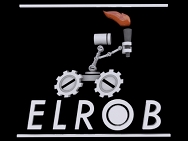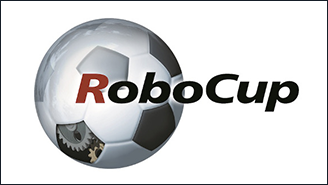Hey, we are ARTIsts
Leave us a little info and we will be in touch.
Our Story
We are on a Mission.
By working together, we can accomplish anything we set our minds to.
Meet the Team
Core Founders
Where it started
Konstantin Mautner-Lassnig MSc
CEO / Co-Founder

Stefan Loigge MSc
CTO / Co-Founder

Alexander Buchegger BSc
Co-Founder

Clemens Mühlbacher PhD
Co-Founder

ARTIsts
Creating the magic
Lena Franke Mag.a
Legal and Strategic

Michael Stradner MSc
Robotics Engineer

Raphael Hoheneder BSc
Robotics Engineer

Danijel Capljak
Robotics Engineer

Jahn Mansour, BSc
Robotics Engineer
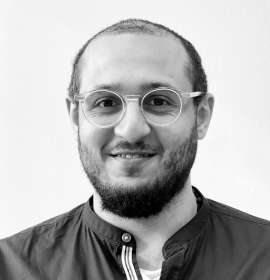
Ivan Držaić
C-Level Executive Assistant

Fabian Hirmann, MSc
Robotics Engineer

Lotta Lumiaro
Robotics Engineer

Christoph Royer
Robotics Engineer

.
.
.
.
.
.
Support
Extending our capabilities
Kambis Kohansal Vajargah, MSc
Business Mentor

Andreas Mayrhofer
Designer

Join the Team!
Become an ARTIst and shape the future of robotics together.
Offer:
- A young, very nice team incl. two easy-to-maintain robot prototypes
- Flexible working conditions (working hours, home office option, etc.)
- Good team spirit with flat hierarchies
- Experience the development of a company from the very beginning
- Work on a promising technology and witness its progress!
You are interested?
Then let us talk! Please send your application documents with your CV to: office@arti-robots.com
Events and Achievements
Challenges and Events where our Team or Members participated.
ELROB - European Land Robot Trial
European Land Robot Trial – ELROB
The ELROB, which takes place for the sixth time now, enables you to get a glance at the latest R&D in the area of unmanned outdoor/off-road ground systems. The scenarios have been developed in closest co-operation with the military users and reflect the up-to-date requirements of the forces. This event offers the fantastic opportunity to mingle with the international experts from the user community, the industry and the R&D sector.
- Finalist, ELROB 2022, Transport – Mule, Austria, June 2022
Dubai World Challenge for Self-Driving Transport
Dubai World Challenge for Self-Driving Transport
The 2nd edition of the challenge is devoted to Self-driving Logistics Services, including ground transport and drones.
“This global competition aims to expand the use of driverless transport across many fields and encourage leading companies in this particular field to tackle the existing mobility challenges, such as the first and last-mile, traffic congestions, and the low public transport ridership. Self-driving transport has become a key pillar of RTA’s strategy, and we are determined to achieve our goals through a host of creative initiatives capable of making self-driving transport a reality on the ground in Dubai.” added Al Tayer.
- Finalist, Self-Driving Transport, Dubai, Oktober 2021
ARG – Autonomous Racing Graz
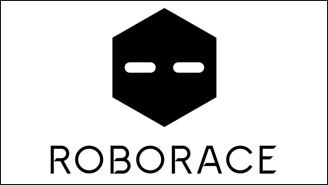
ARG – Autonomous Racing Graz
World’s first racing series for humans and artificial intelligence. It was created to accelerate the development of autonomous software by pushing the technology to its limits in a range of controlled environments.
- 2nd Season Alpha, Localization Challenge, Zalazone, August 2019
- 2nd Season Alpha, Performance and Precision Challenge, France, November 2019
Tedusar and GRIPS
Tedusar and GRIPS
Team Tedusar and GRIPs are both student teams of the TU Graz, which competed in RoboCup Rescue and RoboCup Logistic.
- 1st Place “Best in Class Autonomous Exploration” at RoboCup World Cup 2016 – Leipzig, Germany
- 3rd in Logistics League 2016
- 2nd Place “Best in Class Autonomy” at RoboCup German Open 2015 – Magdeburg, Germany
- 4th Place “Overall Competition” at RoboCup German Open 2015 – Magdeburg, Germany
- 2nd Place “Best in Class Autonomy” at RoboCup World Cup 2014 – João Pessoa, Brazil
- 1st Place “Innovative User Interface Award” at RoboCup World Cup 2014 – João Pessoa, Brazil
DHL Robotics Challenge
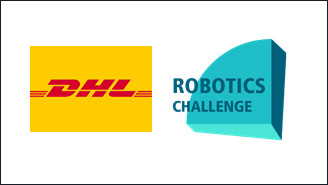
DHL Robotics Challenge
The Challenge in 2016 was about designing a self-driving delivery cart that can accompany mail carriers and postmen in their last-mile delivery. The prototype must be able to move freely when transporting parcels.
- 2nd Place at DHL Robotics Challenge 2016
Achievements
Achievements
- Winner Startup World Cup Austria – Smart City 2022
- Austrian Robotics Award 2018
- AMADEE-18 Mars Analog Mission of the Austrian Space Forum (ÖWF) 2018 – Oman
- 2nd place at the SPIRIT-STARTUP-AWARD 2023 – Read more
- Finalist – The Dubai World Challenge For Self-Driving Transport
Research Projects and Scientific Publications
Overview of the projects and scientific papers we are involved in.
Research Projects
move2zero
Development of a fully decarbonized urban bus transport concept, including zero-emission power generation, vehicle operation, and high-recyclability infrastructure to achieve a carbon-neutral public transit system. The project also integrates smart demand-responsive routing and energy storage solutions to optimize route efficiency and grid interaction.
Links:
RoboNav
Creation of an integrated navigation system leveraging Earth observation data for autonomous ground robots operating in remote and challenging outdoor environments, enabling efficient deployment without prior mapping. The system combines satellite imagery, on-board LiDAR, and SLAM algorithms to maintain real-time position accuracy.
Links:
Outdoor AI Kits
Participation in the ESA Business Incubation Centre Austria to create modular AI software kits that enable robust indoor and outdoor navigation for autonomous vehicles by leveraging satellite and Earth-observation data. The kits offer plug-and-play modules for terrain classification, obstacle detection, and connectivity management.
Links:
LOKI
Design of a server-level AI toolkit for fleet management, introducing observation loops between individual robots and a central server to enhance efficiency and performance of autonomous mobile robot fleets. It includes dynamic task allocation, predictive maintenance scheduling, and adaptive route planning features.
Links:
REDI
Development of an assistance software tool to streamline and accelerate the deployment of autonomous mobile robots in production and logistics processes, reducing integration time and complexity. REDI features graphical workflow mapping and automated configuration generation for heterogeneous robot platforms.
REDI is an acronym and stands for Robot Efficient Deployment Instrument.
Links:
LOKI II
LOKI II extends the original LOKI concept by completing the “observation loop” for autonomous robot map updates: individual robots collect and compress environmental data, the central server parses and routes this data to specialized servers (mapping, statistics, etc.), and then distributes optimized map updates back to each robot. The project emphasizes data reduction techniques, secure high-speed transfer, and dynamic/static object classification.
Links:
PRESENT
The flagship project PRESENT aims to develop a new software architecture based on an innovative security-by-design approach, ensuring its suitability for handling even the mostsensitive data. It guarantees full compliance with legal and ethical security requirements while remaining user-friendly enough to be operated without any background in statistics or computer science.
The name PRESENT stands for “PREdictions for Science, Engineering N’ Technology”.
Links:
SIMPRINT
Development of a compact, autonomous outdoor printing robot capable of large-scale, high-precision printing tasks in unstructured environments, designed for ease of deployment and operation. SIMPRINT incorporates battery-powered mobility, modular ink cartridges, and cloud-based job scheduling.
Links:
CarryMeHome
Modular shared-use transport trolley system for people and goods, combining high-speed robotic platform testing (up to 23 km/h) with user-centered design to enable convenient, car-free last-mile mobility solutions. The platform supports remote monitoring and geofencing for enhanced safety in urban settings.
Links:
YLVI
Satellites-assisted mission verification tool that integrates satellite data with ground robotics to plan, deploy, and monitor outdoor robot routes in natural environments. YLVI includes customizable waypoints, environmental data overlays, and automated progress reporting features.
YLVI is developed within the ESA Spark Austria initiative.
Links:
TASTE
Transformative AI-Assisted Testing in Industrial Mobile Robotics: application of reinforcement learning and model-based techniques to automate and optimize software testing for autonomous mobile robot control systems, reducing manual test effort. TASTE integrates coverage-driven test generation and real-time fault injection to uncover edge-case failures.
Links:
AVASI
Optimization of digital twins and simulation loops for autonomous vehicle sensor data, employing machine-learning feedback to improve perception and control in complex driving scenarios. AVASI’s architecture supports real-time synchronization between virtual and physical components for rapid iteration.
Links:
RoboM3
Transformative AI-Assisted Testing in Industrial Mobile Robotics: application of reinforcement learning and model-based techniques to automate and optimize software testing for autonomous mobile robot control systems, reducing manual test effort. TASTE integrates coverage-driven test generation and real-time fault injection to uncover edge-case failures.
Links:
AUTOFORST
The project aims to enhance the forestry supply chain by automating the entire timber value chain, improving safety, efficiency, and sustainability through autonomous machines, eco-friendly technologies, and digital traceability.
Links:
Scientific Publications
2021 - 2025
An Event-Based Approach to Autonomous Navigation.
Hoheneder, R., Buchegger, A., Didari, H., Eder, M., Mautner-Lassnig, K., Mühlbacher, C., Steinbauer-Wagner, G.
Austrian Robotics Workshop (ARW). Linz, Austria (April 2023)
Offroad Terrain Classification for Mobile Robots.
Walch, W., Eder, M., Mautner-Lassnig, K., Steinbauer-Wagner, G.,
Best Regular Paper Award sponsored by RAS (Robotics & Automatio)
Chapter of IEEE Austria Section at the Austrian Robotics Workshop 2022. (2021)
Simulation-Driven Optimization of Stanley Controller Gains for Enhanced Tracking in Autonomous Navigation Robots
Perez-Villeda, H., Mautner-Lassnig, K., Mühlbacher, C.
In Proceedings of the Austrian Robotics Workshop 2025 (pp. 85-90). (May, 2025)
2016 - 2020
Full-Day Workshop Opportunities and Challenges with Autonomous Racing.
Schrattner, M., Zubaca, J., Mautner-Lassnig, K., Renzler, T., Kirchengast, M., Loigge S., Stolz, M., Watzenig D.
ICRA 2021. Xi’an, China. (May-June 2020)
ACTIVE-Autonomous Car to Infrastructure Communication Mastering Adverse Environments.
Steinbaeck, J., Druml, N., Herndl, T., Loigge, S., Marko, N., Postl, M., … & Steger, C.
In 2019 Sensor Data Fusion: Trends, Solutions, Applications (SDF) (pp. 1-6). IEEE. (2019, October)
Constraint-based testing of an industrial multi-robot navigation system.
Mühlbacher C., Steinbauer G., Reip M., Gspandl S.
In 2019 IEEE International Conference On Artificial Intelligence Testing (AITest) (pp. 129-137). IEEE. (2019, April)
An Autonomous Vehicle for Parcel Delivery in Urban Areas.
Buchegger, A., Lassnig, K., Loigge, S., Mühlbacher, C., & Steinbauer, G.
In 2018 21st International Conference on Intelligent Transportation Systems (ITSC) (pp. 2961-2967). IEEE. (2018, November)
Diagnosing Discrete Event Systems Using Nominal Models Only.
Pencolé Y., Steinbauer G., Mühlbacher C., Travé-Massuyès L.
In DX (pp. 169-183). (2017, September)
Adapting edge weights for optimal paths in a navigation graph.
Mühlbacher C., Gspandl S., Reip M., Steinbauer G.
In International Conference on Robotics in Alpe-Adria Danube Region (pp. 372-380). Springer, Cham. (2017, June)
Adapting edge weights for optimal paths in a navigation graph.
Mühlbacher C., Gspandl S., Reip M., Steinbauer G.
In International Conference on Robotics in Alpe-Adria Danube Region (pp. 372-380). Springer, Cham. (2017, June)
Estimation of the Traversal Time for a Fleet of Industrial Transport Robots.
Mühlbacher C., Gspandl S., Reip M., Steinbauer G.
In International Conference on Robotics in Alpe-Adria Danube Region (pp. 363-371). Springer, Cham. (2017, June)
Task-Dependent Configuration of Robotics Systems.
Pagonis, A., Mühlbacher, C., Steinbauer, G., Gspandl, S., & Reip, M.
In OAGM & ARW Joint Workshop 2017 on “Vision, Automation & Robotics”. (2017, May)
Model-based testing of an industrial multi-robot navigation system.
Mühlbacher C., Steinbauer G., Reip M., Gspandl S.
In Proceedings of the 16th Conference on Autonomous Agents and MultiAgent Systems (pp. 1652-1654). (2017, May)
A Robust and Flexible Software Architecture for Autonomous Robots in the Context of Industrie 4.0.
Wallner, M., Mühlbacher, C., Steinbauer, G., Haas, S., Ulz, T., & Ludwiger, J. C.
In OAGM & ARW Joint Workshop 2017 on “Vision, Automation & Robotics”. (2017, May)
An Autonomous Transportation Robot for Urban Environments.
Lassnig K., Mühlbacher C., Steinbauer G., Gspandl S., Reip M.
In ÖAGM/AAPR ARW 2017: Joint Workshop on “Vision, Automation & Robotics” (2017, May)
A Model-Based Fault Detection, Diagnosis and Repair for Autonomous Robotics systems.
Loigge S., Mühlbacher C., Steinbauer G., Gspandl S., Reip M.
In ÖAGM/AAPR ARW 2017: Joint Workshop on “Vision, Automation & Robotics” (2017, May)
A Model-Based Fault Detection, Diagnosis and Repair for Autonomous Robotics systems.
Loigge S., Mühlbacher C., Steinbauer G., Gspandl S., Reip M.
In ÖAGM/AAPR ARW 2017: Joint Workshop on “Vision, Automation & Robotics” (2017, May)
Supervision of Hardware, Software and Behavior of Autonomous Industrial Transport Robots.
Steinbauer, G., Loigge, S., & Mühlbacher, C.
In 2016 IEEE International Conference on Software Quality, Reliability and Security Companion
(QRS-C) (pp. 298-300). IEEE. (2016, August)
Controlling logistics robots with the action-based language YAGI.
Ferrein, A., Maier, C., Mühlbacher, C., Niemueller, T., Steinbauer, G., & Vassos, S.
In International Conference on Intelligent Robotics and Applications (pp. 525-537).
Springer, Cham. (2016, August)
Hierarchical Planning with Traffic Zones for a Team of Industrial Transport Robots.
Imlauer S., Mühlbacher C., Steinbauer G., Reip M., Gspandl S.
In 4th Workshop on Distributed and Multi-Agent Planning (DMAP). (2016, June)
Improving dependability of industrial transport robots using model-based techniques.
Mühlbacher C., Gspandl S., Reip M., Steinbauer G.
In 2016 IEEE. International Conference on Robotics and Automation (ICRA) (pp. 3133-3140).
IEEE. (2016, May)
RoboCup Logistics League TDP Graz Robust and Intelligent Production System GRIPS.
Mühlbacher C., Steinbauer G., Haas S., Ulz T., Wallner M., Keskic D.
In RoboCup International Symposium. (2016, February)
Diagnosis makes the difference for a successful execution of high-level robot control programs.
Mühlbacher C., Steinbauer G.
In Intelligent Autonomous Systems 13 (pp.1119-1132). Springer, Cham. (2016)
Belief Management using the Action History and Consistency-Based-Diagnosis.
Mühlbacher C., Steinbauer G. (2016)
Hands Off – A Holistic Model-Based Approach for Long-Term Autonomy.
Mühlbacher C., Steinbauer G. (2016)
2010 - 2015
Automatic Model Generation to Diagnose Autonomous Systems.
Santos Simón J., Mühlbacher C., Steinbauer G. (2015).
Knowledge-Aware Execution of Programs in IndiGolog.
Mühlbacher C., Steinbauer G. (2014, August).
Using common sense invariants in belief management for autonomous agents.
Steinbauer G., Mühlbacher C.
In 2014 AAAI Spring Symposium Series (pp. 49-59). Springer, Cham. (2014, March).
Towards Autonomous Manipulation in RoboCup Rescue.
Nitsch, J., Buchegger, A., Koert, D., Rose, C., Maurer, J., Kohlbrecher, S., … & Steinbauer, G.
In RoboCup International Symposium 2014. (2014).
Life Sign Detection Based on Sound and Gas Measurements.
Imlauer, S., Lassnig, K., Maurer, J., Steinbauer, G.
In Austrian Robotics Workshop 2014. (2014).
Active Diagnosis for Agents with Belief Management.
Mühlbacher C., Steinbauer G. (2014).
The right choice matters! SMT solving substantially improves model-based debugging of spreadsheets.
Außerlechner S., Fruhmann S., Wieser W., Hofer B., Spörk R., Mühlbacher C., Wotawa F.
In 13th International Conference on Quality Software (pp. 139-148). IEEE. (2013, July).
Improving the ROS Arm Navigation Stack by Using Stochastic Inverse Kinematics.
Mühlbacher, C., Steinbauer, G., Reip, M., & Gspandl, S.
In Austrian Robotics Workshop. (2013).
Collaboration






